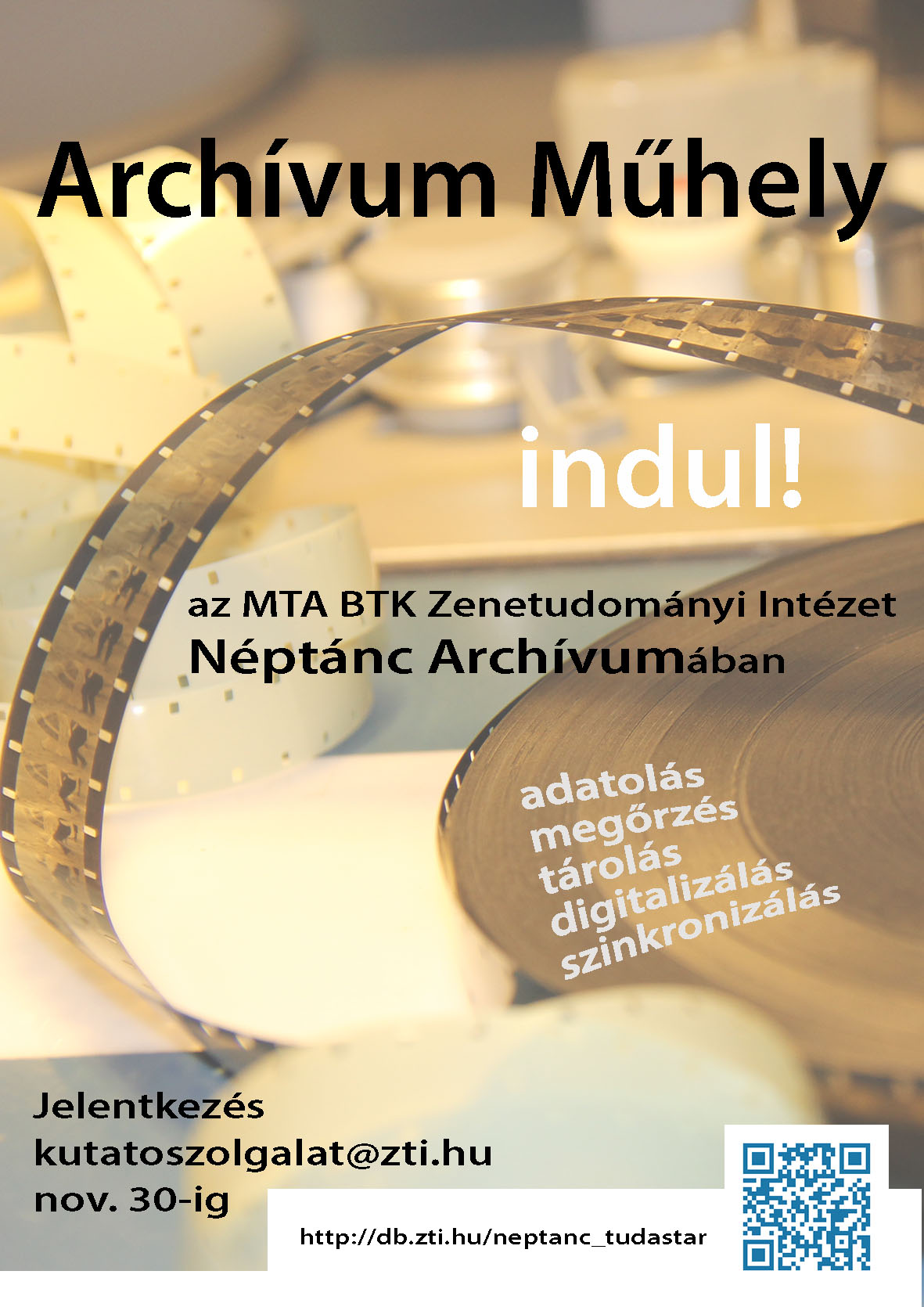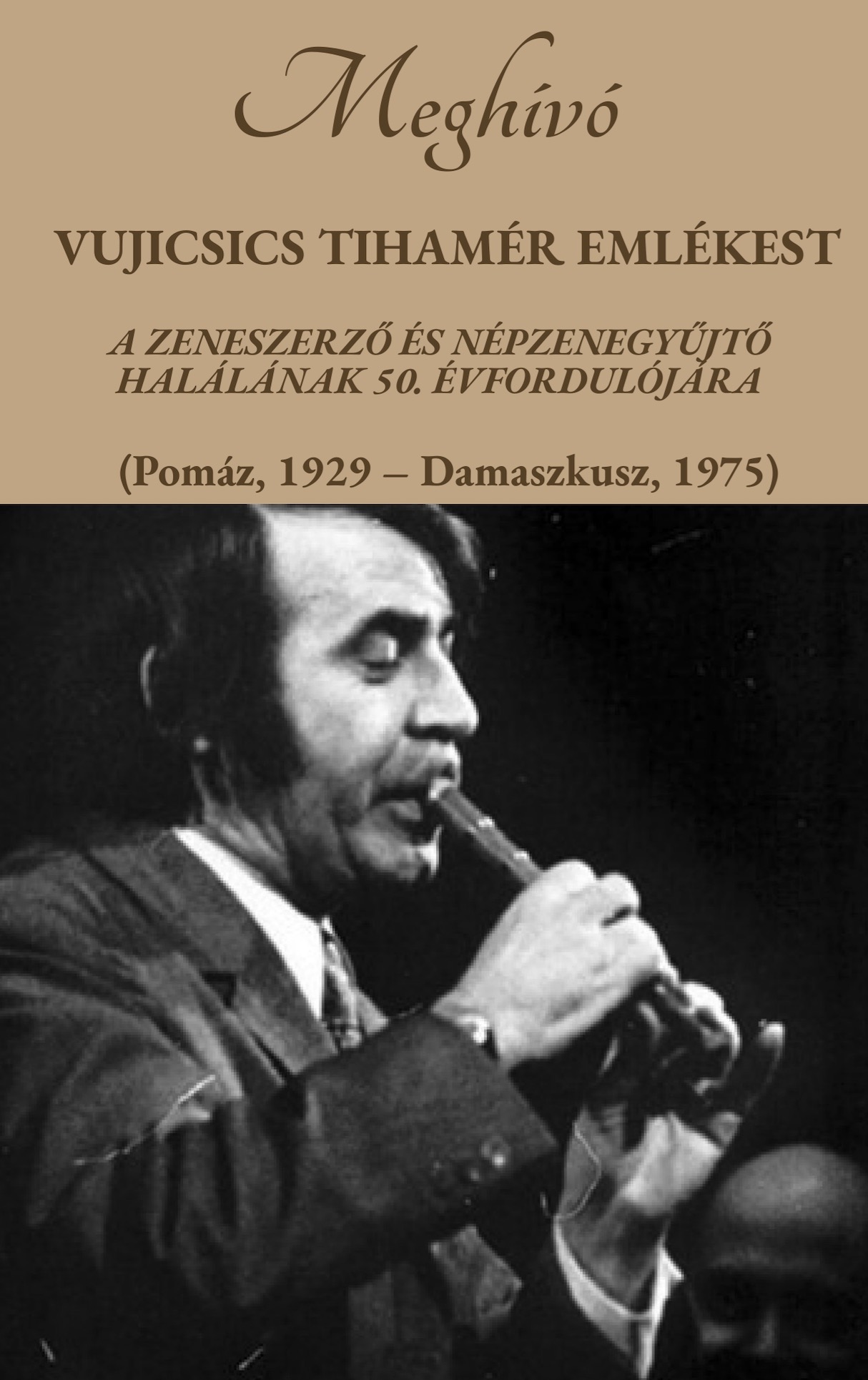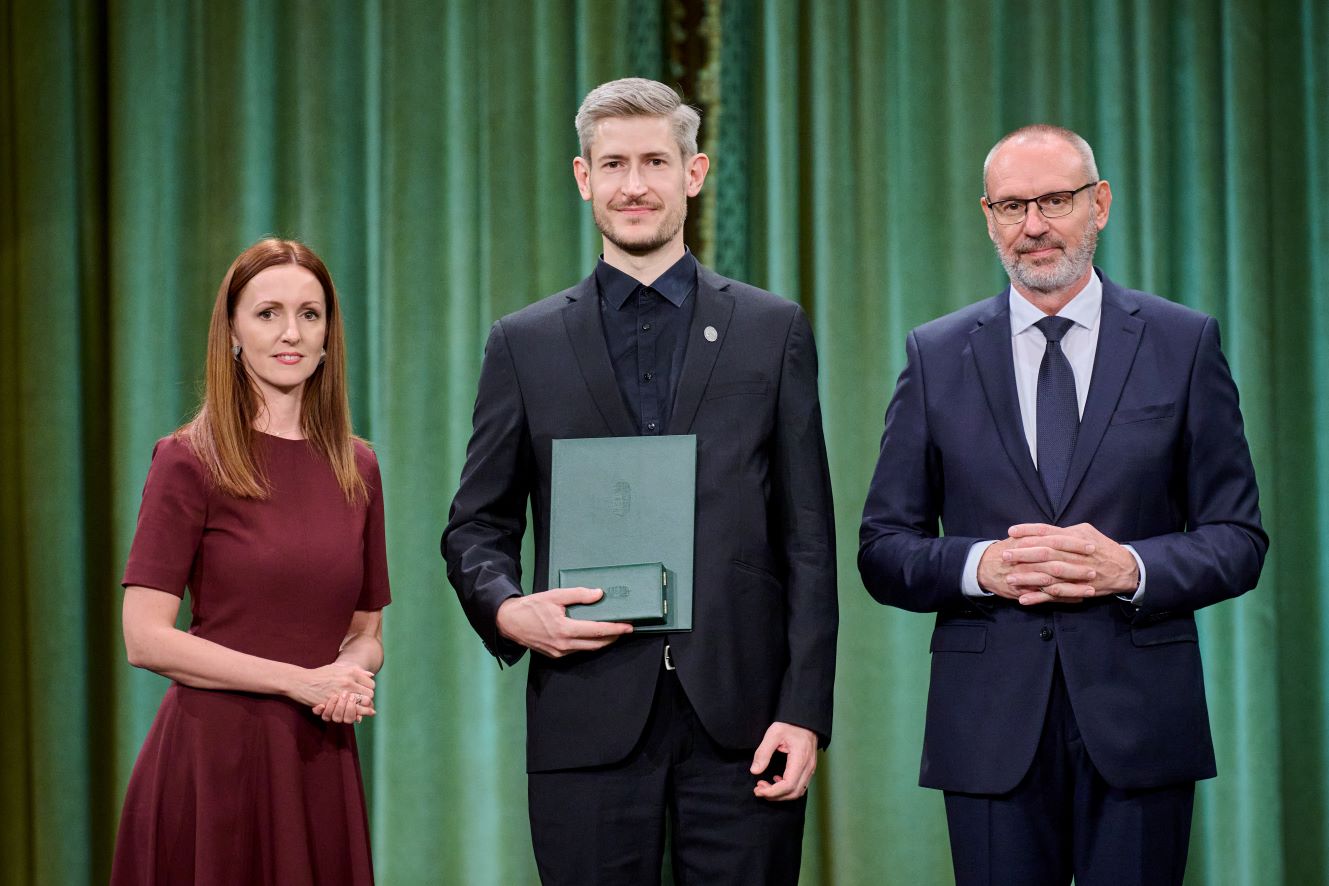2025. szeptember 22-én emléktáblát avattak Vargyas Lajos Széchenyi-díjas népzenekutató és folklorista egykori lakóhelyén, Budapesten, a Bimbó út 4. számú ház falán.
Az emléktáblát az ELTE HTK Néprajztudományi Kutatóintézete és Zenetudományi Intézete, a Néprajzi Múzeum, az ELTE BTK Néprajzi Intézete és a Magyar Néprajzi Társaság állíttatta, számos résztvevő – egykori tanítványok, kollégák, barátok és rokonok – jelenlétében.
További részletek az ELTE Humán Tudományok Kutatóközpont oldalán olvashatók.
Egy sorozat véget ért, de kutatása és társadalmi hasznosulása csak most kezdődik. A Régi Magyar Drámai Emlékek XVIII. század c. sorozatot, s egyúttal annak 6. alsorozatát, a Ferences Iskoladrámákat lezáró VI. kötet bemutatóját Fájdalmas Anya ‒ aki a csíksomlyói kéziratos forrásegyüttes legmeghatározóbb típusának, a passiójátéknak egyik főszereplője ‒ liturgikus emléknapján, szeptember 15-én tartották az ELTE HTK Zenetudományi Intézetben. Az iskoladráma-megelevenítések, az előadások és a kötet közreműködőivel tartott kerekasztal-beszélgetés méltó megemlékezés volt a magyar nyelvterület fennmaradt drámaszövegei kritikai közreadás-sorozatára, továbbá bepillantást engedett a szövegközlés és jegyzetelésének nehéz, ám sokszor izgalmas pillanataiba, egyúttal pedig a jövő kutatásának elindítását prófétálta.
|
|
Várjuk a táncgyűjtések adatolása, megőrzése, tárolása, a néptáncfilmek digitalizálása és szinkronizálása iránt érdeklődőket. 
Jelentkezni lehet 2018. november 30-ig a Ez az e-mail-cím a szpemrobotok elleni védelem alatt áll. Megtekintéséhez engedélyeznie kell a JavaScript használatát. címen. Az időpontokat a jelentkezőkkel egyeztetve jelöljük ki, helyszín 1014 Budapest, Táncsics M. u. 7.
|
|
Dear Colleagues,
as the host of the 22nd symposium of the Study Group on Historical Sources of Traditional Music (see CfP) it is great pleasure for me to be able to welcome you on the information site of the event. The symposium takes place April 12-16 2018 in Budapest, Hungary in the Institute for Musicology, Research Centre for the Humanities, Hungarian Academy of Sciences (acronym: ZTI).
You find the detailed program of the symposium below. The program begins at 10 a.m. (registration from 9 a.m.) on the 12th of April in the Institute: 1014, Budapest, Táncsics M. u. 7. There will be no registration fee, all the additional programs (concerts, excursion, exhibitions) and coffee breaks are free of charge for the participants. All the participants take charge of his/her transport, accommodation, and meals.
Accommodation facilities
You can find more facilities here.
The contact person of the organizers from ZTI: Dorottya Tari (Ez az e-mail-cím a szpemrobotok elleni védelem alatt áll. Megtekintéséhez engedélyeznie kell a JavaScript használatát.). Please, do not hesitate to contact her if you have any questions.
Important! Please do not forget, every participant should be the member of ICTM and should have paid the membership fee to ICTM before the symposium.
We are looking forward to seeing you in Budapest!
Pál Richter
director of ZTI
Program
ICTM Study Group on Historical Sources of Traditional Music
22nd Symposium of the Study Group on Historical Sources of Traditional Music
April 12–16, 2018 in Budapest, Hungary
Program (printable version)
The Inside and the Outside, or Who is the Other?
Different Perspectives on Historical Sources of Ethnomusicology
12th of April (Thursday) Institute for Musicology Bartók Hall
9.00 – Registration
10.00 – Opening address [representative(s) of the Hungarian Academy of Sciences, leader of the Study Group (max. 3 persons)]
10.15 – 1st session Inside/outside of an institution
Susanne Ziegler: “We are all outsiders” – Evaluating Historical Sources
Andreas Meyer: The Conservation of Memory – Visitors to Music Exhibitions as Insiders
11.20–11.45 Coffee break
11.45 – 2nd session
Matthias Lewy: Sound Entities in Amerindian Myths of the Guiana Highlands and How to Disguise them for Outsiders
Valeriya Nedlina: Ethnic and Westernized Kazakh Traditions: A View from the Inside of the Country and from the Outside of the Ethnicity (personal experience)
12.45 – Lunch
15.00 – 3rd session Inside/outside of a musical culture
Kai Viljami Åberg: Finnish Romani Music and Research Tradition – Insiders, Outsiders and Others
János Sipos: Did I Become an Insider in Turkish Sufi community?
Katalin Lázár: Outside of Khanty, Inside of Hungarian Traditional Music
16.30–16.50 Coffee break
16.50 – 4th session
Susana Sardo: Archives against Archives in De-colonial Times: The Case of the Indira Gandhi National Centre for the Arts in Goa
Gerda Lechleitner – Nona Lomidze: Performer, Researcher, Archivist – A Continuing Shift between Insider/Outsider Perspectives
18.00 – Evening concert
13th of April (Friday) Institute for Musicology Bartók Hall
10.00 – 5th session Inside/outside of a musical culture
Ulrich Morgenstern: How to Bear a Tradition? Continuity and Transfer in European Revival of Folk Instrumental Music
Kata Riskó: “Corrected” Transmission: Impacts of Outsiders on Folk Tradition
Anda Beitāne: “Who Will Sing When We All Die?” The Inside from Different Perspectives
11.30–11.50 Coffee break
11.50 – 6th session Inside/outside in a historical perspective
Éva Guillorel: Insider or Outsider: What Does That Mean for Nineteenth-century Breton Folklorists?
Imola Szűcs: Inside and Outside of Ethnomusicology in the 19th and 20th Centuries in Hungary
12.50 – Lunch
14.30–15.45 Guided visit in the museum of Music History (in ZTI)
15.45–16.00 Coffee break
16.00 – Panel session Religious Music in Oral Tradition, Folk Music in Paraliturgical Context
Panel presentation of Slovenian and Hungarian Case Studies
Marija Klobčar: Trapped in Otherness: The Influence of Church Politics and the Role of Prominent Clerics in Slovenian Folk Song Collecting
Drago Kunej – Rebeka Kunej – Urša Šivic – Marjeta Pisk: Special Ritual Folk Songs in the Archives of the Institute of Ethnomusicology ZRC SAZU: Otherness of mrtveče pesmi (Dirges)
Balázs Déri: Songbook (notni zbornik) versus Living Liturgical Practice in the Serbian Orthodox Church in Hungary
Pál Richter: The Role of Un-educated Cantors in Small Christian Villages of East Central Europe
14th of April (Saturday) Institute for Musicology Bartók Hall
10.00 – 7th session Inside/outside in a historical perspective
Klára Erdélyi-Molnár: Is the Slovakian National Anthem a Hungarian Song? Is the Gipsy Hit a Slovakian Folk Song?
Ardian Ahmedaja: The Constant Change in Inside and Outside Perspectives in the Work with Historical Sources. About a Study Trip among Albanians in the Former Yugoslavia in 1959
Jelena Jovanović – Danka Mihajlović: Work on Tihomir Vujičić’s Ethnomusicological Legacy: Negotiating of Insider/Outsider Positions of the Researchers
11.30–11.50 Coffee break
11.50 – 8th session Inside/outside in a historical perspective
Adelajda Merchán-Drazkowska: Outsiders Among Insiders: Fascination With the Others Behind the Barbed Wire of the German POW Camps During WW1
Olga Szalay: War or defense. Hungarian soldiers’ songs in World War I.
12.50 – Lunch
14.30 – 9th session Inside/outside in a historical perspective
Mattia Scassellati: How to Become Insider in a Society Tthat Doesn’t Exist Anymore? The Example of Italian Influence on the Formation of tango argentine
Clemens Gütl: Upside-down / South-up Research: Sound Recordings in African Languages by Austrian Scholars from an African Perspective
15.30–15.50 Coffee break
15.50–17.50 Business meeting of StGr
18.00–22.00 Visiting the Hungarian Dance House Festival and Fair (Budapest Aréna)
15th of April (Sunday) Excursion to Szentendre (open air museum of ethnography)
16th of April (Monday) Institute for Musicology Bartók Hall
10.00 – 10th session Inside/outside in a historical perspective
Jakša Primorac: Theorizing the Origin of Traditional Multipart Singing Styles
Taive Särg – Janika Oras: The Scholarly Identity of Estonian Ethnomusicologists during 1980-2010
Marie-France Mifune: The ethnomusicologist, in between Archives and The Others
11.30 – Closing and coffee
Practical information
Hungarian currency
Hungarian Forint (HUF), 1 EUR = cca. 310 HUF. You can pay by card almost everywhere in Hungary.
Transport from the airport to the Castle district
From the airport you can take the bus No. 100, which goes directly to the city centre (Deák Ferenc tér), and from there you have to take the bus No. 16, directly to the Castle. If you take a taxi, please choose the FŐTAXI (this the best, and they have an official transport organization point in the airport). Please, do not choose taxi, which doesn't belong to any company! And all the taxis in the capital (in Budapest) are yellow! You can pay by bank card as well.
It coasts from the airport to Castle district cca. 35–40 EUR. With public transport this route is 5 EUR. Tickets for public transport can by from the ticket machines. Single trip costs 350 HUF, but you can by ten trips tickets as well (you can pay by card).
|
|
Contemporary Approaches in Dance Anthropology
Symposium for Choreomundus Students
MTA BTK Zenetudományi Intézet
2016. november 25-26.




















